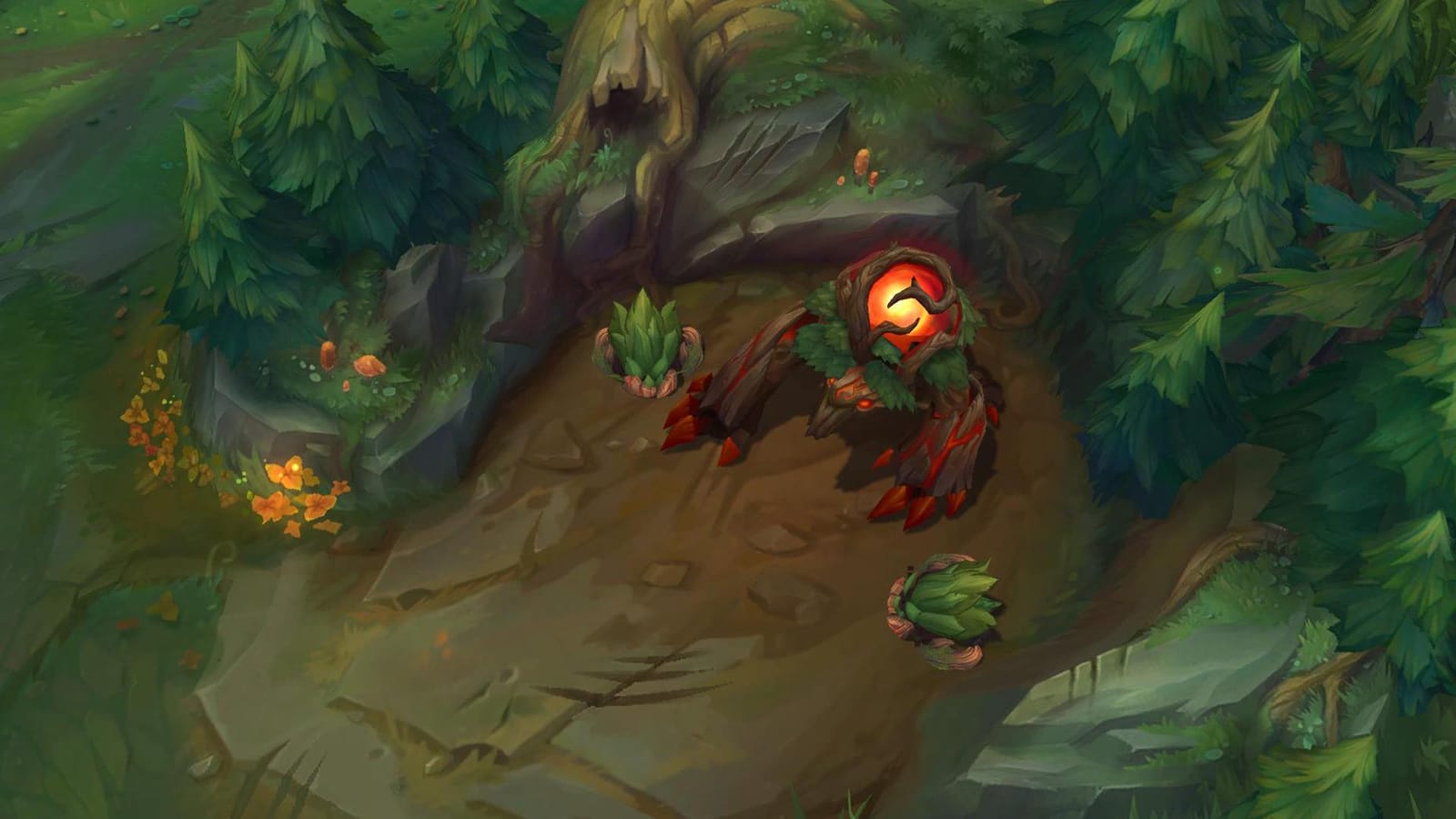

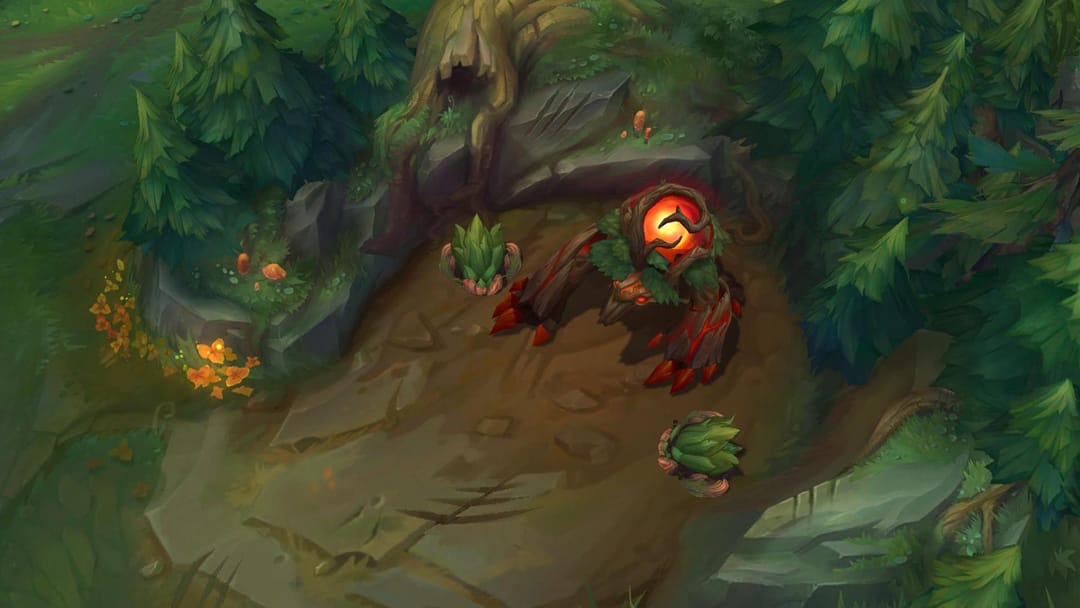
In League of Legends, jungle is quite different when compared to other roles as there are no lanes, turrets, or minions. Instead, the jungle is home to various camps and map control knowledge, making the role no simple task.
Naturally, with any role in League of Legends, skilled mentors/coaches are available to provide the tools, strategies, and insights needed to navigate this complex role.
This guide is your map to understanding the importance of jungle coaching and how it can better your gameplay.

A jungler has a lot to do. They farm monsters, help teammates by ganking enemy laners, get important game objectives, and place vision around the map. Being a good jungler means thinking ahead, making quick decisions, and knowing the game well. The choices a jungler makes can change how the game goes. They need to work well with their team and make the most of every good situation.
Below are the core principles and intricate strategies a coach usually covers during jungle coaching sessions:
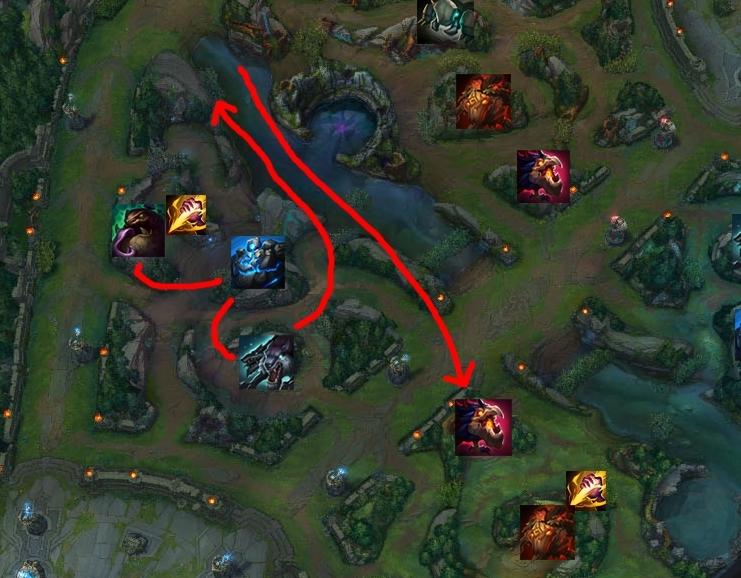
The meticulous world of jungle pathing is a subject of its own. Coaches, armed with a wealth of experience and insights, break down the intricacies of efficient pathing:
Optimizing Experience and Gold Gain: Each jungle camp offers varying amounts of experience and gold. A coach will guide a jungler on balancing the need for quick levels and ensuring a healthy gold increase. For instance, while Krugs give the most experience, they may not always be the optimal choice given their location and time to clear them.
Adaptability in Pathing: Matches are dynamic, and sticking rigidly to a set path can be detrimental. Coaches train junglers to read the game, adjusting their path based on enemy jungler positioning, lane pressures, and potential objective contests.
Anticipating Enemy Movements: A big part of jungle pathing is predicting where the enemy jungler might be. Coaches delve deep into recognizing patterns, understanding common routes for specific champions, and using that knowledge to either counter-jungle, set up counter-ganks, or secure objectives.
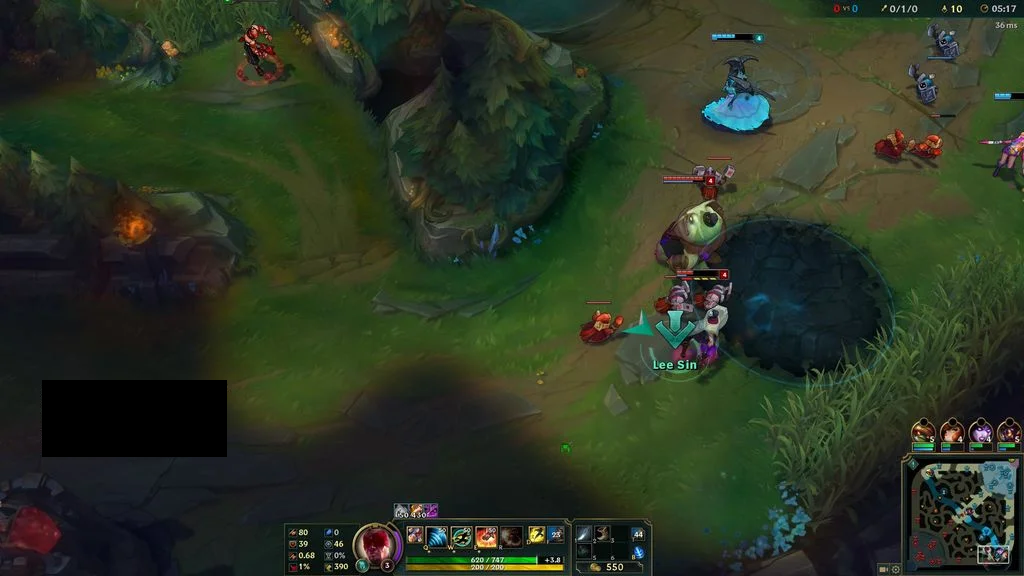
To master the art of ganking, a jungle player is expected to look beyond just landing abilities:
Reading the Lane: Coaches highlight the importance of understanding lane dynamics. It's not just about spotting an overextended enemy but also considering factors like wave position, enemy summoner spells, and even tracking enemy ward placements.
Choosing the Right Angle: An efficient gank isn't always head-on. Depending on the champion you're playing and the state of the lane, the angle of approach can make or break a gank. Coaches emphasize the importance of utilizing jungle plants, terrain, and vision control to make ganks unpredictable.
Timing: Every second counts in LoL. Coaches train junglers to synchronize ganks with ally laners, ensuring crowd control chains and maximum damage output. They also stress the importance of recognizing windows when enemy laners use crucial abilities or when their escape tools are on cooldown.
These massive game-changers are more than just 'another task' on a jungler's checklist:
Vision Game: Coaches stress the importance of vision control and pre-objective setup. This involves setting up deep wards to spot enemy movements, clearing enemy vision with sweepers or control wards, and ensuring safe access for your team.
Smite Wars: Securing an objective often boils down to who uses their Smite better. Coaches teach junglers the nuances of timing their Smite perfectly to avoid steals, especially when the objective's health is dwindling, and both teams are poised for the contest.
Decision Making: Sometimes, the right call is to let an objective go. Coaches focus on the macro game, teaching junglers when it's beneficial to trade objectives, when to stall the enemy while sacrificing an objective, and when to fully commit to a contest.
Each of these components is a deep dive into the world of jungling. A coach's role is to unpack these complexities, translating them into actionable strategies tailored for each player.
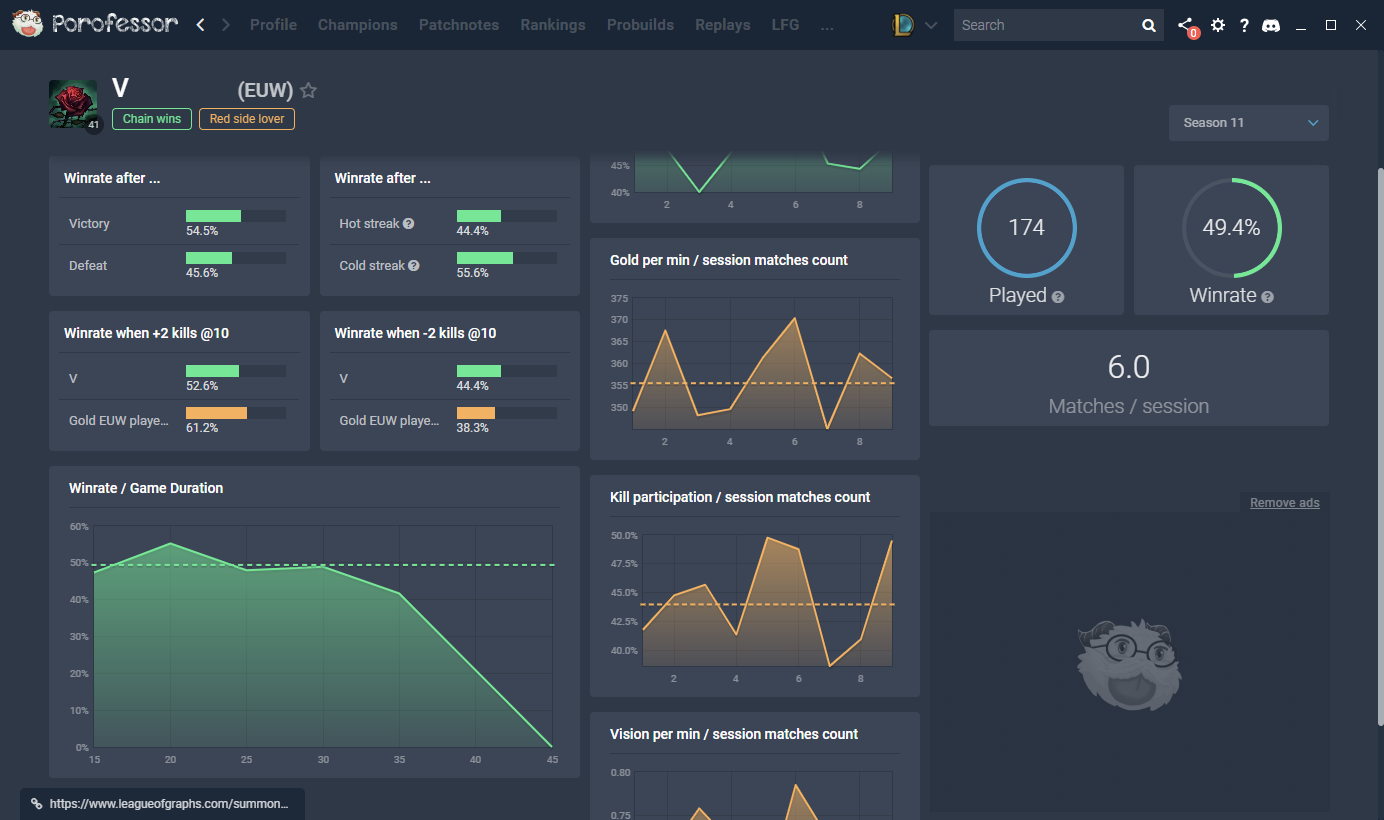
In the digital age, data is gold. And in the competitive world of LoL, it's your compass. Coaches and players alike turn to analytics, such as Porofessor, to refine their strategies.
Metrics like jungle camp respawn timings, counter-jungling success rates, and gank effectiveness are invaluable. Specialized League of Legends apps offer heatmaps, efficiency graphs, and more, visually representing a jungler's impact. By studying this data, coaches can pinpoint strengths to leverage and weaknesses to address, providing tailored advice for improvement.
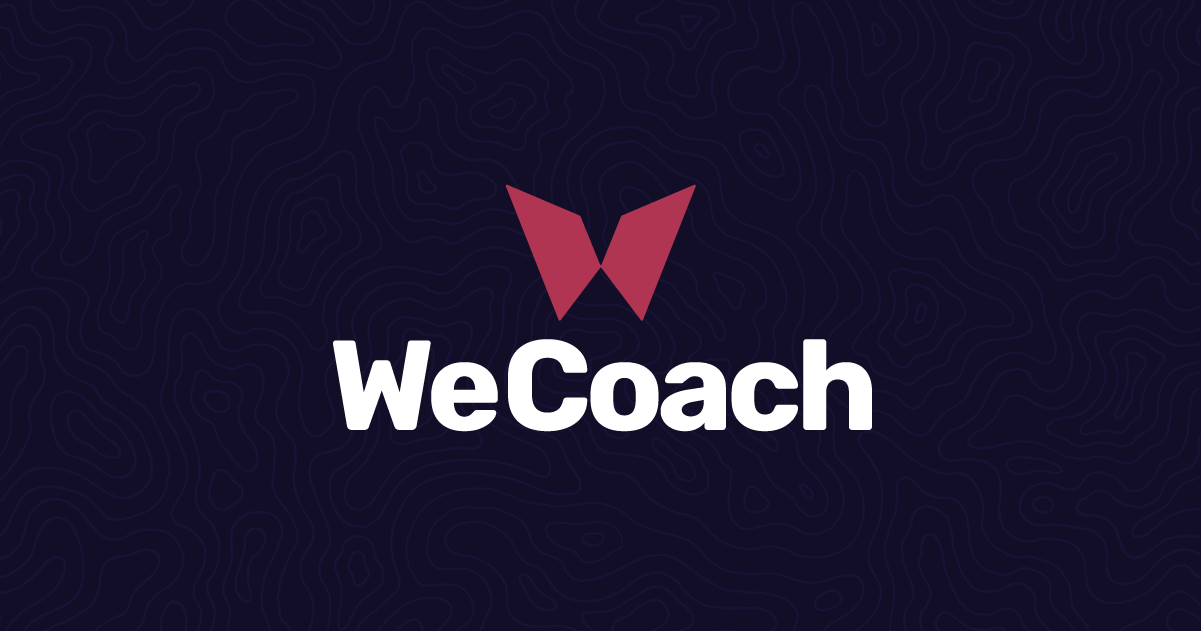
Navigating the world of coaching can be overwhelming. Just as there's strategy in selecting the right champion, there's wisdom in choosing the right coach. Here's a detailed guide to help you make an informed decision:
Begin by assessing the coach's background in the eSports scene.
Competitive Credentials: A coach who has played at a high level, like Challenger or Master tier, undoubtedly possesses advanced game knowledge. However, playing skills don't always translate into teaching skills.
Previous Coaching Successes: Delve into testimonials and case studies. Has the coach nurtured players who've gone on to excel in their roles? A track record of successful student outcomes can speak volumes.
A coach's expertise is only as valuable as their ability to convey it.
Teaching Style: Everyone learns differently. Some prefer visual aids like VOD reviews, while others benefit from real-time feedback during gameplay. Engage with potential coaches to understand their teaching methods and ascertain if they align with your learning style.
Patience and Understanding: Compared to other League of Legends roles, the jungle role can be challenging, and everyone makes mistakes. A top coach will stay patient, pointing out where you went wrong without being negative.
Trust is crucial in a coaching relationship.
Avoiding Overblown Promises: Be wary of coaches who promise unrealistic results in a short timeframe. Climbing ranks and honing skills is a journey, not an overnight event.
Listen and Adjust: A great coach listens to your words. If something's not helping, they should be willing to change their approach for you.
Your success should be the coach's priority.
Custom Plans, Not One-Size-Fits-All: Avoid coaches who use the same plan for everyone. Find someone who gets to know you – your strengths, weaknesses, and goals – and tailors sessions to fit you.
Think Big Picture: It's great to move up a few ranks quickly, but the best coaches help you grow steadily and really get the jungle role. That way, you'll keep getting better even after the lessons are over.
While price shouldn't be the sole deciding factor, finding a coach that fits your budget is essential. Furthermore, ensure their availability aligns with yours. There's no point in securing a world-class coach if your schedules never match up.
Keep in mind a coach isn't just someone showing you the ropes. They're your teammates in getting better at the jungle. So, pick wisely and set the stage for a fruitful coaching relationship.
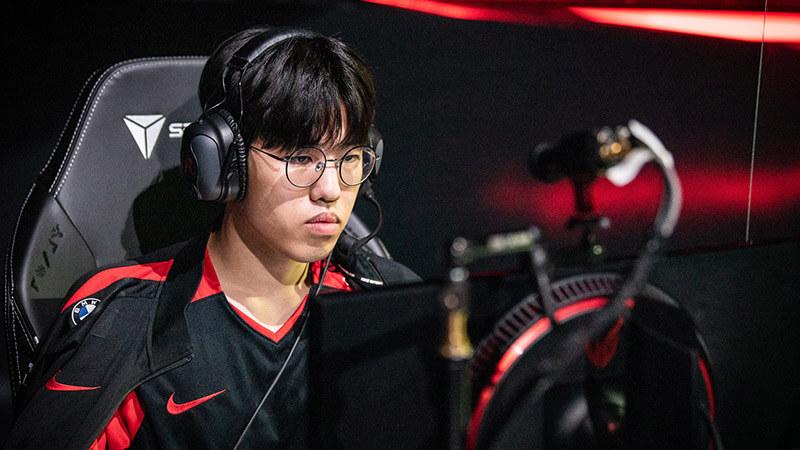
Every player starts somewhere, and for many, the journey from amateur to professional is paved with trials, errors, and countless hours of gameplay. But with the proper guidance, the climb becomes more manageable. Jungle coaching provides that structure, offering insights and strategies that might take years of gameplay to discover without external help. From understanding the meta to refining individual mechanics, coaching bridges the knowledge gap, propelling players toward their peak potential.
The jungle is a constantly changing puzzle in League of Legends. By choosing coaching, you're investing in improving your skills and passion. Whether you're a beginner or an experienced player aiming to refine your gameplay, jungle coaching offers the guidance and knowledge you need to excel in the game.

Charlene is an esports journalist and content writer covering competitive League of Legends, Valorant, and more.
View all articles